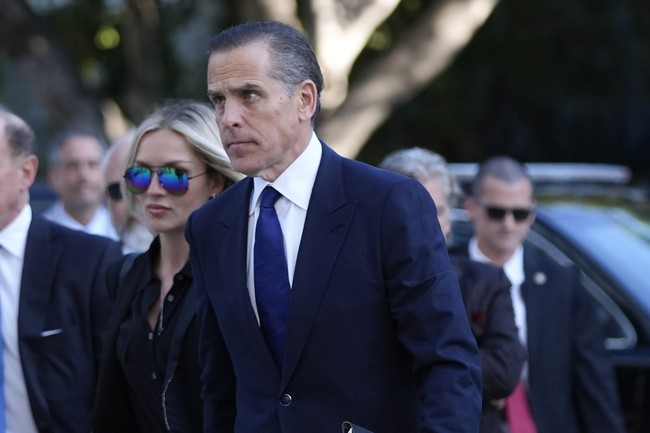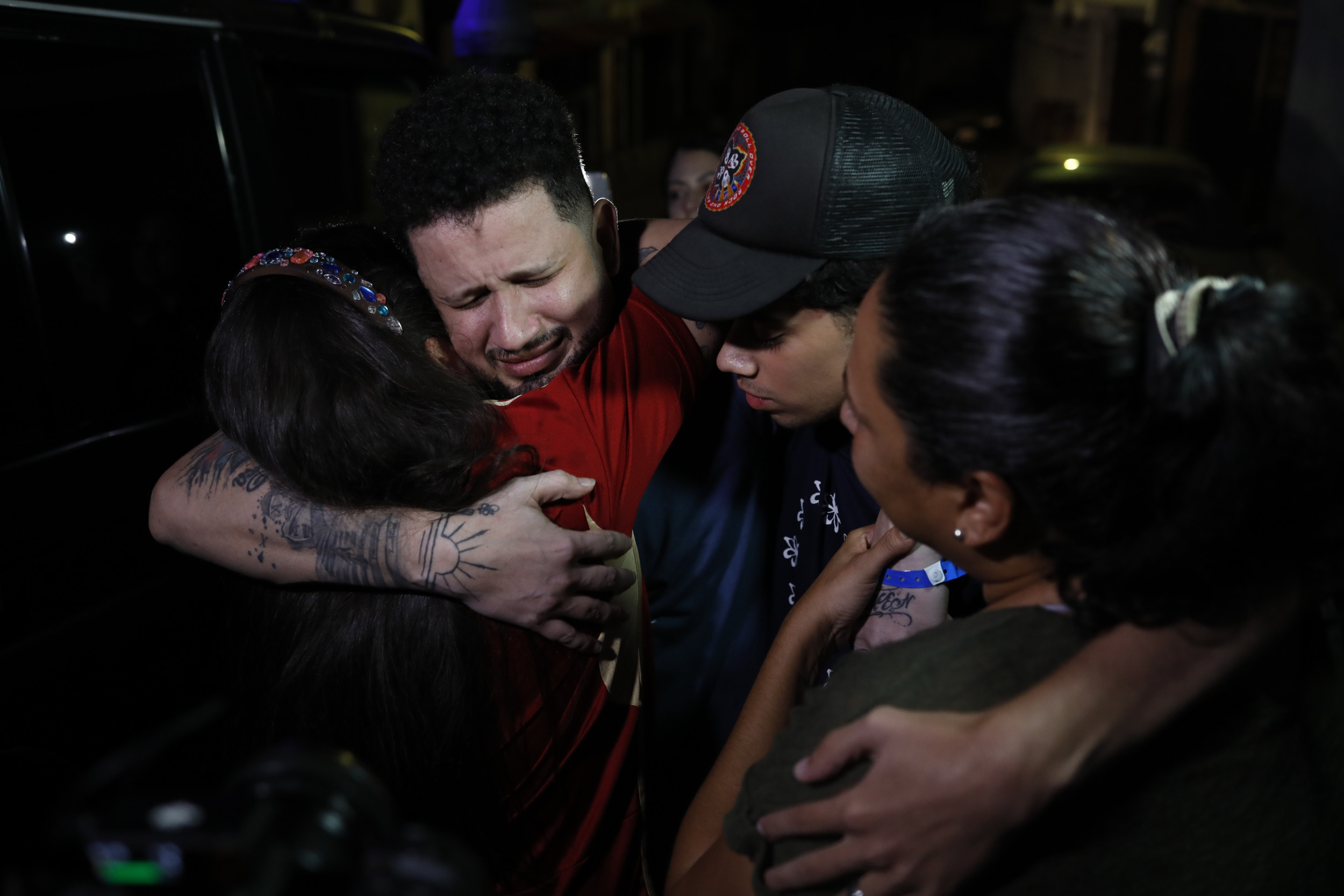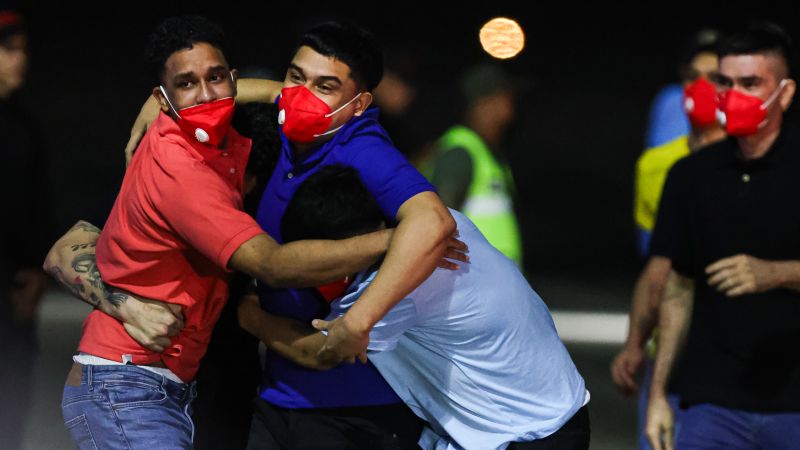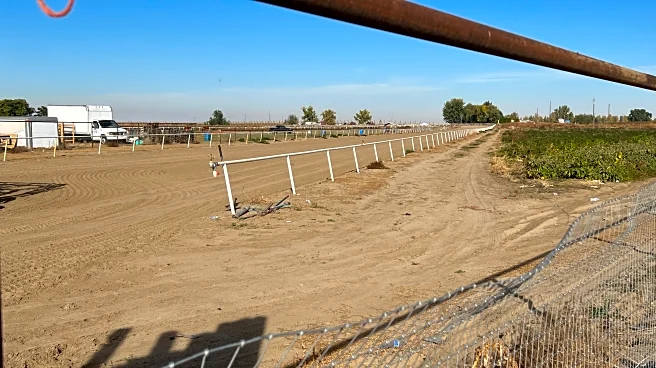Venezuela has taken a decisive step in addressing human rights violations by launching a formal investigation into El Salvador’s President Nayib Bukele and two other officials. This inquiry comes in response
Did You Know
Honeybees can recognize human faces and remember them for their entire lives.
?
AD
to grave allegations that Venezuelan migrants detained in El Salvador's CECOT prison have suffered extensive mistreatment and torture. Venezuelan Attorney General Tarek Saab has committed to thoroughly examining these claims, signaling the urgency and seriousness with which the Venezuelan government views the welfare of its nationals abroad.
The catalyst for this investigation is linked to the repatriation of over 250 Venezuelans from El Salvador following a U.S.-backed exchange program, raising significant concerns about the conditions these migrants faced while in custody. Reports indicate that these individuals were subjected to various forms of abuse during their detention, prompting Venezuela to seek accountability and justice for those affected. This development not only underscores growing tensions between Venezuela and El Salvador but also highlights the challenges involved in the treatment of migrants across national borders.
Venezuela's commitment to investigating these allegations reflects a larger narrative surrounding human rights in the region, emphasizing the necessity for safeguarding the dignity and welfare of migrants. As countries grapple with the complexities of migration and the accompanying human rights implications, this case serves as a poignant reminder of the responsibilities nations bear toward protecting vulnerable populations. The outcome of this investigation could have significant repercussions, shaping future diplomatic relations as well as the global conversation on migrant rights.
Q&A (Auto-generated by AI)
What are the allegations against Bukele?
Nayib Bukele, the President of El Salvador, is facing allegations of abuse against Venezuelan migrants detained in his country. Venezuela's Attorney General, Tarek Saab, announced an investigation into Bukele and two other officials for their treatment of Venezuelans, particularly those who were repatriated from El Salvador's CECOT prison under a U.S.-backed exchange. The allegations include physical abuse and mistreatment of these detainees.
How does this relate to US immigration policy?
This situation is intertwined with U.S. immigration policy, particularly regarding the deportation of Venezuelan migrants. The U.S. has been involved in repatriating migrants from El Salvador, and this investigation arises from a broader context of U.S. efforts to manage migration flows from Central America. The exchange of detainees reflects the complex relationship between the U.S., El Salvador, and Venezuela regarding immigration and human rights.
What is the history of Venezuelan migration?
Venezuelan migration has surged in recent years due to political instability, economic collapse, and human rights abuses in Venezuela. Millions have fled the country, with many seeking refuge in neighboring countries, including Colombia and Ecuador, as well as Central America. The migration crisis has been exacerbated by the government's repressive measures against dissent and the dire economic conditions that have led to widespread poverty and food shortages.
What are human rights implications in this case?
The allegations against Bukele raise significant human rights concerns, particularly regarding the treatment of migrants and detainees. Investigations into potential abuse highlight the need for accountability in how governments handle vulnerable populations. The situation also underscores broader issues related to human rights violations in the context of migration, including the treatment of deported individuals and the responsibilities of states to protect human rights for all individuals within their borders.
How has Bukele's presidency been perceived?
Nayib Bukele's presidency has been a mix of popularity and controversy. He is known for his unconventional style and use of social media, which has garnered a strong following among younger voters. However, his administration has faced criticism for authoritarian tendencies, including undermining judicial independence and press freedoms. The current allegations of abuse against Venezuelan migrants add to the scrutiny of his government's human rights record.
















